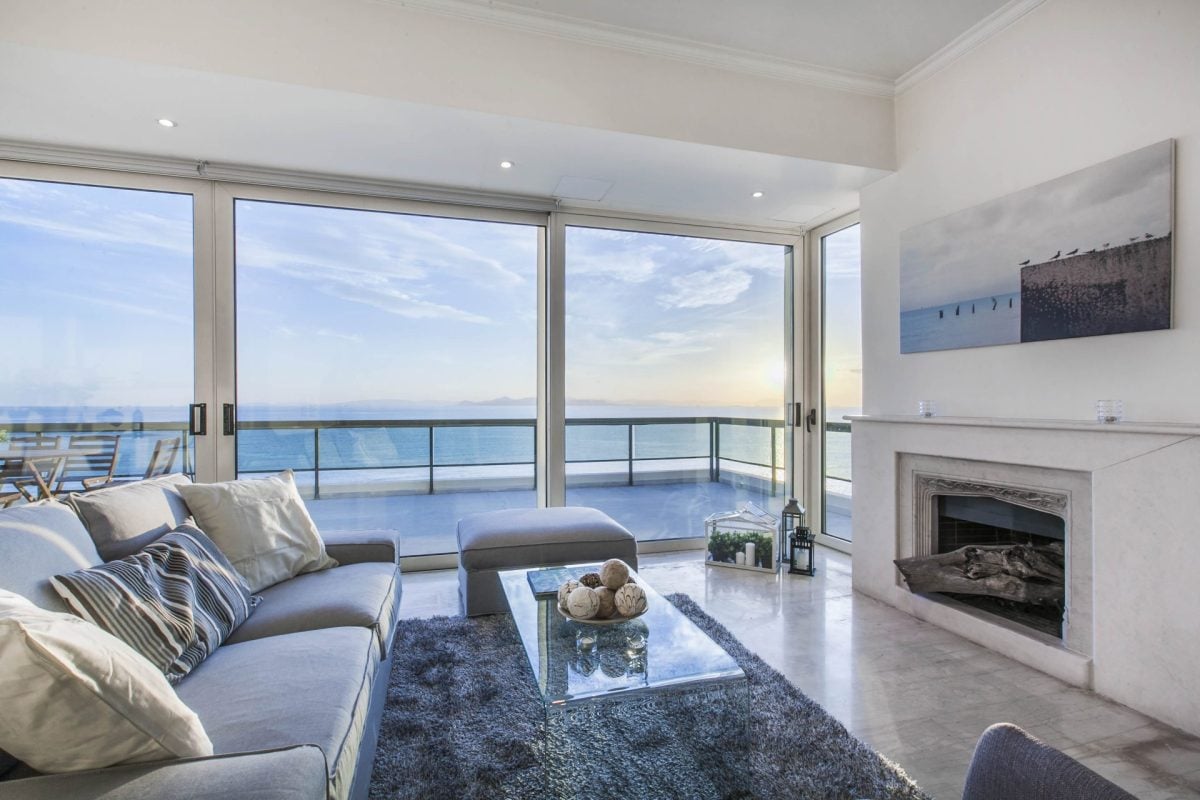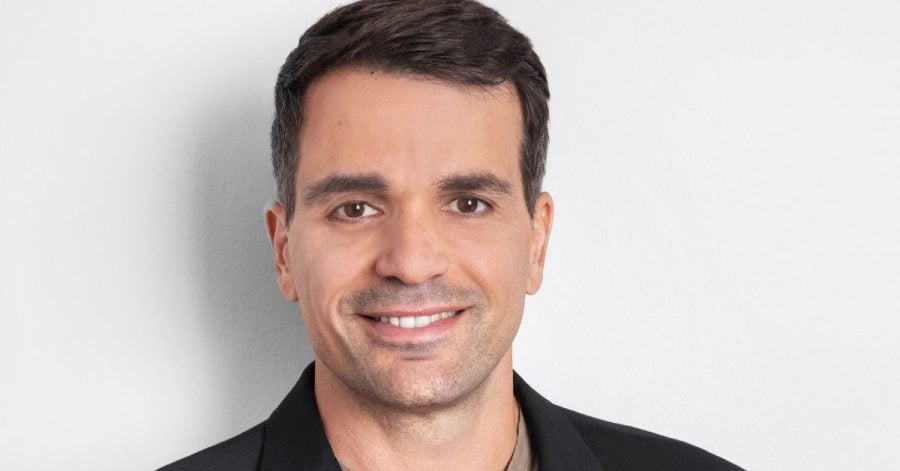What do you think if you were to travel around the world, for business or pleasure, and feel at home? That’s what Blueground CEO, Alexandros Chatzieleftheriou, envisioned and made happen in 2013, after five challenging years booking hotel rooms while on the road as a consultant.
Facing complicated reservation systems in different corners of the world, and ending up with big travel expenditures, made him want to build a marketplace to bridge travelers with their destinations fast, easily, and accessible.
Almost a decade in the real estate market
Now, Greek-founded Blueground has 950 global employees, is present in 26 cities, and aims to reach 50 by 2025. Reason enough to acquire Brazilian proptech startup Tabas, and keep developing a global network of furnished rentals.
On their scaling journey, they gathered 9.500 apartments present on the website, and 4000 corporate clients. And the team expects to double its revenue from last year, which exceeded $145M.
Next year, the proptech startup will turn a decade on the market. It has been growing in waves so far, pressing the accelerator pedal and the brakes from time to time, as Blueground CEO shares with me, and this has landed them at the current destination with over $250M raised in different funding rounds.
But the market has changed and will continue to do so. The central bank interest rates saw a raise, while the high-growth companies’ valuations dropped.
In the interview below, we will find out what it’s like to develop and grow a proptech startup, and why next year will be all about stable profitability instead of skyrocketing growth.

The Recursive: The rental market dropped at the beginning of the pandemic. Two years later, how is Blueground recovering, can you share some numbers about the company?
Alex Chatzieleftheriou, Blueground CEO: In 2020, we had planned to grow a little bit more than 180%. Then, we played offense, adjusting and adapting in the first few months when there was a lot of uncertainty.
We expanded less aggressively at first and it was a successful period for us, we ended up growing about 50% in 2020. People working remotely and using flexible living solutions was a big boost in demand.
As a result, in 2022, we have seen our best year so far. We grew about 100% organically from 2021. And we forecast that we will have more than $300M in organic revenue this year.
What’s the goal of expanding in emerging regions, like Latin America?
We have built and are expanding our global network of move-in-ready homes, and we are already active in the U.S., Europe, the Middle East, and Asia Pacific. The LATAM expansion through the acquisition of Tabas is consistent with this vision.
Latin America is a big region with a rapidly growing real estate sector. There are strong economic ties with the U.S. and a high number of people visiting and working in the region. Also, Brazil’s start-up ecosystem is a very active one with multiple successful companies.
Through our global expansion in multiple markets, the network effects kicked in. Guests that have stayed with us in the U.S. also want to go to Latin America and book their stay at Blueground, the same with our corporate clients like Apple and Google.
Furthermore, Tabas has displayed a strong performance and is culturally aligned with Blueground.
What challenges do you aim to solve for landlords?
Blueground’s solution is ideal for landlords, whether they have one or two units or multiple.
The real estate landscape in Europe and Latin America presents individual landlords, with one or two apartments. The typical way for them to rent their apartment is to go to a real estate broker, see several potential tenants, vet them, and follow up on the payment.
There is a lot of work that has to happen on their side, so we offer a strong value proposition for them. It’s a one-stop shop and it’s hassle-free for them. They receive the rent based on the agreement. We also offer them access to different programs so they can make revenue when there is a gap between tenants.
In the U.S., institutional players may operate hundreds of buildings with thousands of apartments. For them, it’s a different value proposition because they typically rent unfurnished apartments for a year or so. We come in and we give that monthly furnished demand, which large corporations don’t have access to.
Can you share more about the global Blueground network?
Blueground started in Athens, Greece. Then, we first expanded regionally, in Istanbul, Turkey, then to Dubai, UAE.
I have moved myself to all these markets and made sure we were successful. And when we felt it was the right time, we went to New York, America, all while continuing to expand in Europe.
We launched in Singapore, and Hong Kong, in Asia three months ago.
Dubai seems to be quite an attractive destination for tech startup founders, what can you share about your experience there?
For many years, Dubai has been successful in growing its real estate supply and attracting business and individuals. It is the center of the region, so you get an influx of professionals from all the neighboring countries in the broader Gulf area and South Asia. It is impressive to see it now and consider that it has developed tremendously within just a couple of decades.
This has also driven a lot of the mobility that is aligned with Blueground’s business model. We have almost 1000 properties in the Dubai market and we will continue investing and growing further in the city.

What’s your target for next year, are you still expanding to 50 cities by 2025 – will more M&As follow?
We will continue growing in 2023, we expect more than 40-50% of organic growth next year, and we plan to go public in the next two years. But a priority in 2023 will be profitability and free cash flow. This is not a huge change in the way we work. We started bootstrapped in Greece, so we have been efficient from the get-go, it’s how we built the company.
The longer term is to be in 50 cities by 2025. We are mindful of the current economic environment. If there are opportunities we are open to joining forces with other bigger companies, they just have to be strategically relevant, and give us a capability or a product feature that could be additive to the whole.
How are you preparing for the 2023 downturn? Has this impacted your original growth strategy?
We are how I like to say “productively paranoid”. We are always doing different scenarios to see how things could go if our margins go down next year or if there is a significant drop in demand. You cannot focus to maximize both growth and profitability. You have to prioritize one over the other and profitability and cash flow positivity will be our focus for 2023.
We will be even more selective when we add apartments while focusing on efficiency, productivity, and automation via our tech. 2023 however will not just be about defense, we will continue to look for inorganic opportunities and enhance our product and service also.
The downturn, however, does not have any impact on our vision and the opportunity. We just need to adapt and step on the gas or take it off the pedal depending on the external environment. Our sector has a significant tailwind with remote working becoming more prevalent than ever and people being as excited as ever to explore and live in different parts of the world.
How close/further away are you from the $1B evaluation?
Financially, we are performing strongly with more than doubling our revenue while being profitable in the second half of 2022. However, valuations are set when there is a fundraising or exit event. Blueground’s prospects and market are such that the company will eventually exceed $10B in terms of valuation.
What do you think have been the pillars of success for growing a proptech startup which will soon celebrate 10 years?
Starting in Athens, Greece, a small market with just a handful of people has been an amazing journey. I feel more excited than I have ever been and I get emotional thinking about all the stages that we have been through. I cannot wait to celebrate the 10-year mark with our team.
Why have we been successful? A few things:
The team. Blueground’s leadership team has stayed together for many years, and we have worked hard to develop a culture that is high-performing, but that respects and cares about the individual.
Bootstrapped in the early days. A blessing in disguise was the fact that we had limited capital in the early days, which allowed us to find ways to be efficient in how we built the business.
Our technology. This is what has allowed Blueground to scale effectively and efficiently. Without the tech, you cannot run a large, multinational company in the sector. Our tech team has been a game changer and we will continue to strongly invest in it in the future.
What innovation in the real estate vertical are you keeping up with in 2023?
One big area of real estate tech has and will be how we manage to integrate the physical and digital experiences. In our sector, for example, virtual tours, access to amenities, buildings, virtual sales agents, and people experimenting with augmented reality tours. These are interesting things that we are following and applying to our business.
Any final word to founders from our region aiming to build solutions in proptech?
I am a big believer that every business in every sector is different. You don’t have one solution that applies to all. What worked for me might not work for others.
In our case, expanding to the U.S. was a good decision. Given the market size, exposure to US-based investors, and proving our business leaders globally.
For founders starting in Europe, it might feel a bit daunting living far away, and maybe the competition in that market makes them think twice. However, every sector is different, and entering the US may be a great decision for their business; apply the first principles approach and find out what is right for your business.
Given the changes in the venture capital landscape, being capital efficient from the early days is now much more important and founders should start thinking about that early on.







